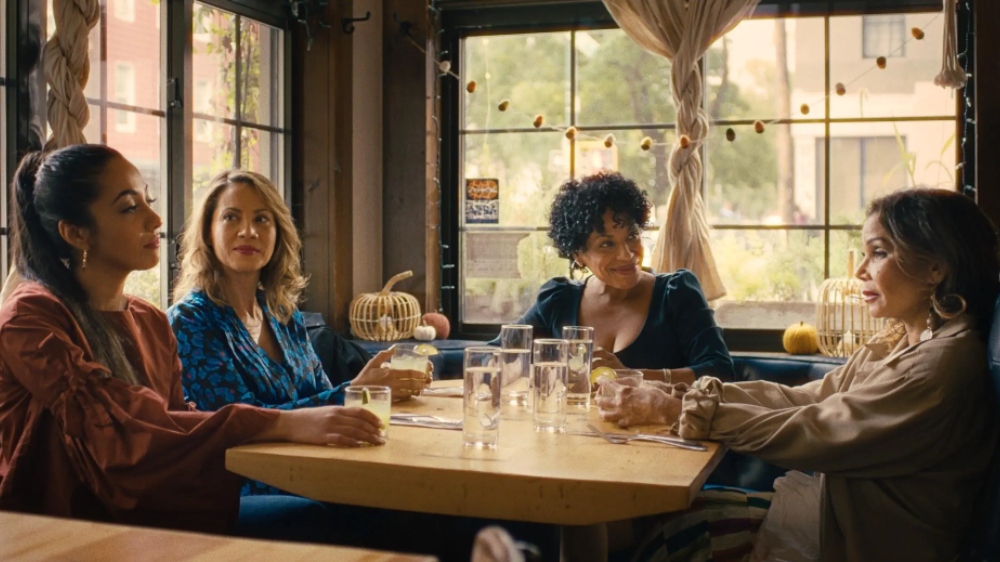
As the end of August approaches, Cinematographer Oren Soffer finds himself riding high thanks to an eventful summer that saw three of his projects premiere at the Tribeca Film Festival, including Ben Snyder‘s family dramedy Allswell, which features actors such as Bobby Cannavale, Max Casella, Elizabeth Rodriguez and Daphne Rubin-Vega.
Soffer has dipped his toe in every avenue imaginable for cinematography, from short films to commercials, and he just wrapped his biggest project yet — Gareth Edwards‘ upcoming sci-fi movie True Love starring Gemma Chan and Allison Janney. He also maintains a perfectly calibrated Instagram page brimming with stunning images.
Soffer shared DP duties with his mentor, Greig Fraser, on True Love, and he told Below the Line how he met Fraser and what he has learned from him, as well as what it was like finally working together. He also discussed which New York-set films inspired Allswell and the two short films he shot that were accepted into Tribeca.
Below the Line: Before we begin, I noticed that you’re calling from a number with a (610) area code. That’s Pennsylvania, right?
Oren Soffer: Yeah, well, it’s a semi-long story. The short version is [that] when I moved to the U.S. from Israel, where I grew up, I stayed with my uncle, who lives in Philadelphia, and [I] set up my cell phone account in Philadelphia. It’s a fun little surprise — people think I’m from the area but then I have to disappoint [them] and explain that I’m not actually from there.
BTL: You have three different projects premiering at the Tribeca Film Festival this year, correct?
Soffer: I have Allswell in [the] features competition, and then I have two shorts as well.
BTL: Let’s start with Allswell. I read that you drew some inspiration from various films set in New York City. Could you name a few of those films that inspired you?
Soffer: We were looking for a bit of a different New York than the sort of gritty, crime-ridden, dark vision of New York that a lot of movies depict, which is certainly a very cinematic depiction, but it was not specifically what we were going for here. Allswell is about a very specific family and a very specific trio of women who have had very specific experiences in a time period in New York that was very distinct on its own. And those experiences [shape] who these characters are today. They’re all Puerto Rican, [and] there’s a lot of that influence in the film — this sort of “Nuyorican” culture, as well as the club scene [of] the ’90s. All of these elements come together to inform who these characters are. That’s [the] story’s inspiration, and how it relates to New York, in terms of visuals, [is that] we looked at a few films that adhere to the pseudo cliché of New York as a character.
I think we were always a bit allergic to that specific wording only because of how much of a cliché it is, but we certainly acknowledge [the fact that] that is a big part of this film and maybe we didn’t want to be so literal about it. But we definitely wanted to imbue the film with [the] spirit of [the] city and a vibe that felt very distinct and very rooted in what the experience of living in the city and growing up in the city is like.
In terms of specific references, we looked at everything from Gordon Willis and John Cassavetes all the way up through New York Stories, and then all the way through to more contemporary versions of this type of storytelling, such as Noah Baumbach’s New York-set films, which were big influences on us. A few other, more character and drama-driven films that were set in New York over the years, like Moonstruck and things like that. It was a bit of an eclectic mix. I don’t think any one thing specifically influenced any other specific things in the film, but the director, Ben Snyder [and I], came up with a little list for ourselves as a homework assignment during prep so we could go and watch certain movies and see if there was any big inspiration we could draw from, I think, the collective experience of, ‘we want all of these films to subconsciously inform our decisions on the final film.’
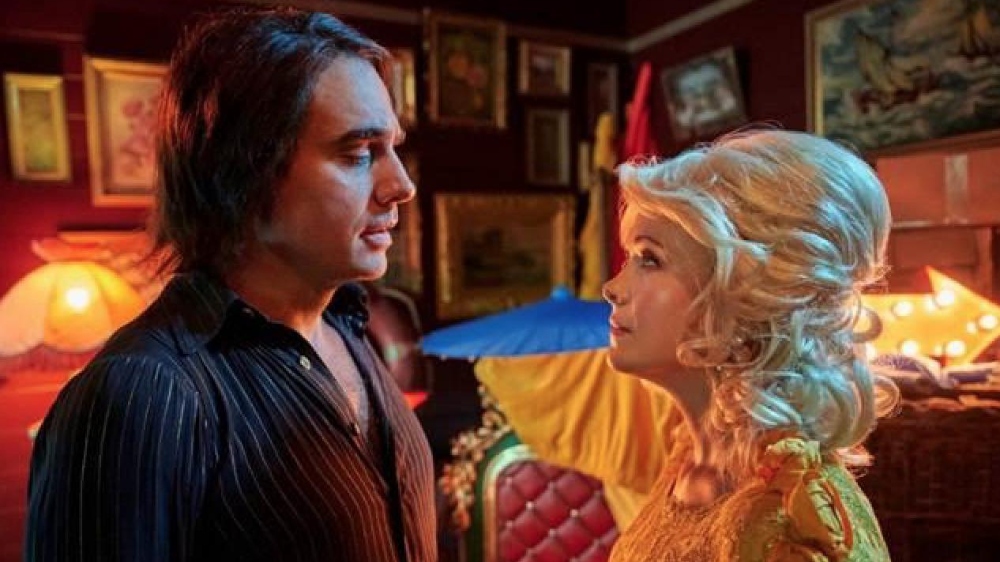
BTL: Shifting gears to your two other films that are both shorts, is Fraud also set in New York?
Soffer: It is set in New York, but it is never specified and New York is not a specific part of the story.
BTL: Could you give me an elevator pitch for both of your short films and tell me a little bit about what made each of them unique from a cinematography perspective?
Soffer: Yeah, for sure. In terms of the plot synopses, I think that you’re going to find those on the Tribeca Film Festival website, so I can spare you that in terms of the elevator pitch. What I found interesting about both of those projects is [that] both of those shorts are genre pieces but they star LGBTQ characters who have not historically been at the center of those kinds of stories. That’s what really attracted me to working on this film — the opportunity to play in a specific genre sandbox with characters that [hadn’t really been in] that sandbox throughout film history.
So, The Letterman is a historical, romantic epic. Obviously, it’s a short, so its epic scope is fairly limited by our budget limitations, but I think we managed to capture it well despite the constraints [because of] the director, Andy Vallentine, [and the] locations he had access to.
The Letterman is a true story about two gay lovers during World War II who exchanged a treasure trove of letters between themselves. One of them was drunk on the front lines and one of them stayed behind, and that trove of letters was recently unearthed by a historian. They were preserved even though most queer couples at that time burned their [letters] so that they [wouldn’t be found out]. We found out that these letters survived and inspired this film. All of the dialogue in the film is lifted directly from the letters, and it was really fun for us to, again, play in this whole cinematic sandbox of pulling inspiration from the historical period-piece war epic [while] placing two gay characters at the center of [it], as opposed to the traditional heterosexual romances that were at the center of those kinds of stories throughout Hollywood. So that was the allure of that one.
Fraud was doing something similar but in a different genre. Fraud is a kind of psycho-thriller about a credit card fraudster who tricks unsuspecting victims into giving them data [and] credit card information and makes these large purchases on their behalf and sort of steals their money — the interesting angle being that this character, this sort of anti-hero, is a trans woman. Again, [for me, it’s about] being able to place a character who [has] not historically been at the center of those types of narratives and those types of films within that kind of genre framework and being able to imbue the surrounding shell with all of the visual flare and the bells and whistles that are typically associated with that genre.
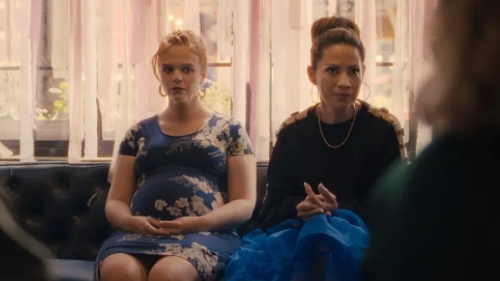
BTL: Speaking of bells and whistles and visual scale, I understand that your mentor is Greig Fraser. Could you tell me a little bit about your relationship, such as how the two of you met and what you’ve learned from him thus far?
Soffer: Greig’s been my favorite cinematographer for a while and I’ve been drawing [all] kinds of inspiration from both his philosophical approach to cinematography and more specifically, [his] lighting philosophies and approaches, for a long time. I just always felt really aligned with his taste and the way he sees light, lenses, and cameras.
We met pretty randomly at some industry event many years ago and just struck up a conversation and I was just really fortunate [to be] able to connect with him and that he took an interest in me and my career. We kept in touch over the years; I would send him periodic updates on work and images from films that I was working on, and that was that. We were able to keep up and it’s something that I’ve been very thankful for. I’m very fortunate that [this] ended up culminating in us working together on an upcoming film directed by Gareth Edwards, and that was the most incredible and humbling possible culmination of this relationship that we had developed.
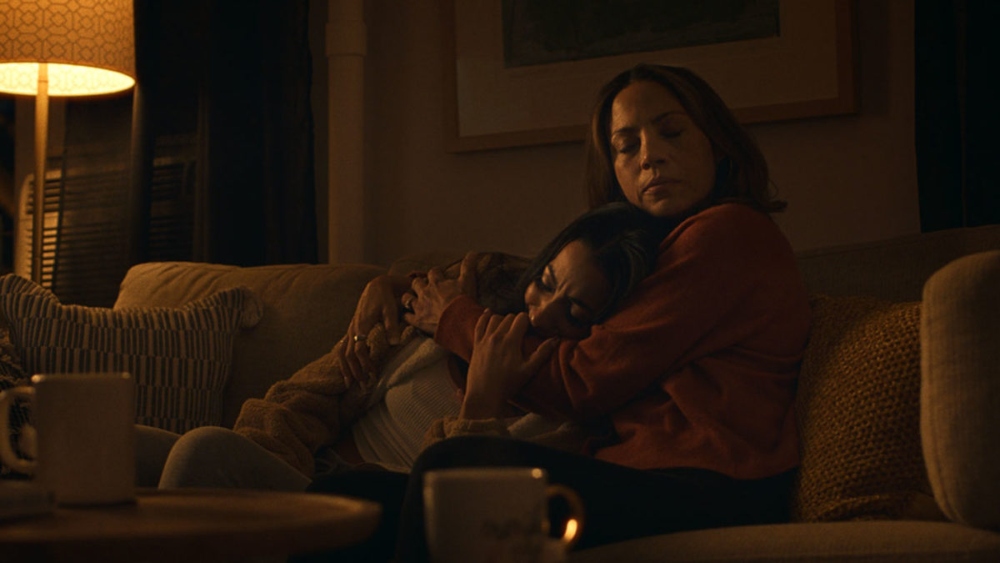
BTL: Is there anything in particular that he has taught you?
Soffer: I think the only specific things that I’ve taken inspiration from Greig are not any [of the] things that he’s told me directly; it’s more just picking up on his working methodology and the advice that he has expressed in interviews and other public venues in the past that I really took to heart and that spoke to me; all of which have manifested themselves in all of my work. One of which is a bigger-picture career philosophy, which is to take on projects that instill a little bit of fear in me [and] expose me to [things] that I haven’t really worked in before and that pose challenges that make the job of meeting those challenges even more rewarding.
So in the case of Allswell, for example, I [hadn’t] really done comedy before, or a film that was really driven by character dialogue, [with a] screenplay that wasn’t more stylized [and was] a little bit darker with sort of genre elements. And I found that challenging and a little bit daunting at first because I had to throw out a lot of the tricks that I have relied on over the years in terms of lens choice, camera movement, and all of these things that you can get away with on a more stylized project because it’s big and visual and because you are already starting an audience from a [point of] suspension of disbelief. Visually, you can push sort of more stylized lighting and more stylized visuals within a project that end up helping to create a sense of an elevated experience for an audience.
In the case of Allswell, it’s very dialogue-driven and performance-driven by [some] amazing actors and I was really nervous but excited about that challenge of how I [should] approach filming a movie like that without compromising the visuals while also wanting to make it beautiful but [also] embracing a cinematic, graphic approach that’s typically designed to not be distracting and to not draw attention to itself, and to enhance story and character.
The other thing that Greig, Reed Morano, Bradford Young, and a few other cinematographers from the same generation [inspired me with] is the simplicity [of] their lighting approach and really stripping things down to [the] basics, motivating lighting from single sources, relying on natural light whenever possible, and not over-complicating lighting or visual approaches in general, and [seeing] how that ends up resulting in more believable, naturalistic, and immersive lighting styles, and creating images that I personally really enjoy [and] respond to as [both] a filmmaker and as a film viewer. Those were sort of the main things that I’ve been inspired by from Greig over the years.
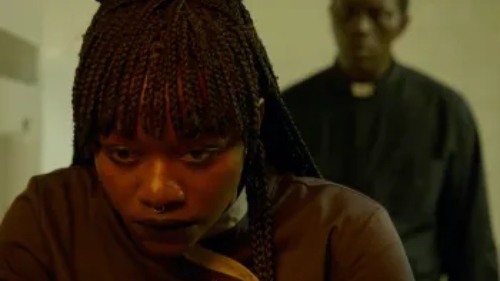
BTL: You mentioned jumping into different genres that you might not be as comfortable with, and yet True Love is being described as a sci-fi film, so was that daunting for you?
Soffer: Well, I can’t say much about True Love, but I can say that the scary part of it was just jumping into a higher-budget [production] than I had worked on before; that was definitely a big leap but one that has — as they all do — turned out to be really rewarding, and I can’t wait to talk about the film more when it’s ready.
BTL: I won’t push you too hard, but can you tell me anything about your experience working with Greig on that film?
Soffer: I can’t talk about it in detail, but when the film comes out, we will tell the story. We approached it in a very unique way and I think it would be really interesting for people to hear about it.
But [in terms of the] big picture, I can say that [it] was obviously a very humbling and incredible experience and a dream come true, and I learned a ton. Both of us really can’t wait to share more once the film is ready.
BTL: I know you mentioned that you’re on a “work vacation” at the moment, but are you working on anything that you can talk about?
Soffer: I don’t really have any specific shoots coming up. I mostly work in commercials, so I’m looking forward to — after [some] long narrative projects — diving back into commercials for a little bit and readopting that lifestyle. It’s very different than a narrative approach, but I’m excited. [I] definitely get bigger budgets, more access to tools, and get to travel and film in all sorts of interesting places and [about] interesting subjects. I find it [filming commercials] to be a really rewarding experience in and of itself.
Other than that, I have one other feature coming out at some point that we filmed last year called Fixation that [was] directed by Mercedes Bryce Morgan. That has not premiered yet but I know they’re looking for a premiere venue and it’s a really, really strange, interesting, unique, and weird movie that I love. I’m really excited for that to come out so people see it and [I’m] able to talk about that one as well, because that was definitely a really special experience on a very stylized film.
[Film festivals] are always a really exciting part of the process, to be honest. We make films for an audience and so it’s just nice to make a film and then to hear the audience’s reactions and everything. It takes on a life of its own. As a lifelong cinephile, it’s just really nice to create something and put it out there, contribute to the legacy of [cinema], not that anything that I’ve worked on is, like, a classic film, but just to be able to create something and put it out there is rewarding for any artist, I think.
Allswell premiered this summer at the Tribeca Film Festival and is currently awaiting distribution, while True Love is expected to arrive in 2023.





